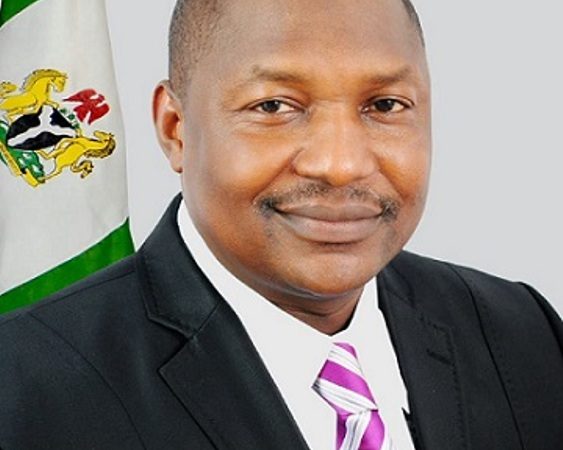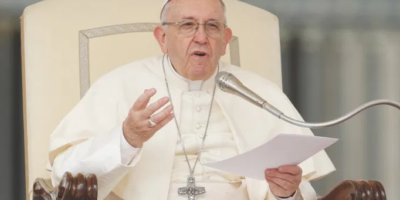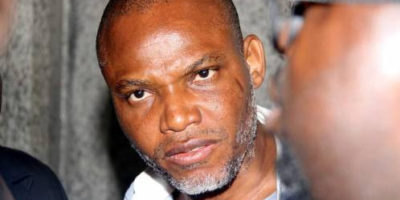For Holding On To £4.2m Ibori Loot, FG Flouts UN Convention

- Undercuts sections 42, 162 of the 1999 Constitution
- TI canvasses legal framework for recovered assets
The resolve of the Federal Government not to return stolen assets recovered from a former Delta State Governor, Chief James Ibori to the treasury of the Delta State Government is illegal and unconstitutional, according to legal agreements and documents.
Contrary to the claims of the Attorney-General of the Federation, Mr. Abubakar Malami (SAN) that the Federal Government was a victim of Ibori’s loot, agreements and documents to which Nigeria is a signatory stipulate that stolen assets recovered from corrupt officials should benefit the people of entities, nations or sovereigns where the crime was committed.
This provision is evident in Article 35 of the United Nations Convention against Corruption (UNAC), Principle 5 of Global Forum for Assets Recovery (GFAR) and Sections 42 and 162 of the 1999 Constitution of Federal Republic of Nigeria (As Amended).
While Section 42 of the 1999 Constitution states that the governments and people of Nigerian are entitled to equal rights and opportunities, the UN Convention provides that people or entities that suffered damage due to acts of corruption are entitled to stolen assets recovered from the corrupt public officials.
The United Kingdom had promised to return £4.2 million loot recovered from Ibori to the federal government. British High Commissioner to Nigeria, Ms Catriona Laing signed a memorandum of understanding (MoU) to that effect with Malami in Abuja on Tuesday.
Consequently, the AGF had declared that the loot recovered from the former governor would go to the federal government and not the state, claiming that the law that Ibori breached was a federal law, and not that of Delta State.
He argued:
The major consideration to who is entitled to a fraction or perhaps the money in its entirety is a function of law and international diplomacy, among others. It is a function of law, in the sense that the law in contention that was alleged to have been breached is a federal law. That is the starting point.
In dealing with international community and international diplomacy, the parties of interest are the state parties (referring to sovereign countries), and not sub-national governments that are involved. The federal government is the victim. Delta state was not involved in the recovery of the funds.
Consequent upon the federal government’s claim to the loot recovered from Ibori, Flavision specifically verified provisions of the UN Convention and Global Forum for Asset Recovery (GFAR) to ascertain Malami’s interpretation.
Article 35 of the UN Convention, which focuses on compensation for damage, contravenes the position canvassed by the AGF after signing a memorandum of understanding with the UK Government on the return of the loot.
The article state thus:
Each State Party shall take such measures as may be necessary, in accordance with principles of its domestic law, to ensure that entities or persons who have suffered damage as a result of an act of corruption have the right to initiate legal proceedings against those responsible for that damage in order to obtain compensation.
Though not binding, GFAR, an initiative of the UK and US with the support of the World Bank and United Nations Office on Drugs and Crime (UNODC), similarly reinforces Article 35 of the United Nations Convention against Corruption.
Principle 5 of GFAR, which dwells on beneficiaries, states:
Where possible, and without prejudice to identified victims, stolen assets recovered from corrupt officials should benefit the people of the nations harmed by the underlying corrupt conduct.
Principle 6 further states:
Where possible, in the end use of confiscated proceeds, consideration should also be given to encouraging actions which fulfil UNCAC principles of combating corruption, repairing the damage done by corruption, and achieving development goals.
As shown on the website of the World Bank, GFAR is a stolen asset recovery platform, which empowers investigators and prosecutors charged with identifying and tracing assets and getting necessary cooperation with financial centres in recovering and returning assets.
Also, section 42 of 1999 Constitution frowns at unequal rights and opportunities among entities, nationalities or people that constitute the Federal Republic of Nigeria.
Section 42(1) states:
A citizen of Nigeria of a particular community, ethnic group, place of origin, sex, religion or political opinion shall not, by reason only that he is such a person:- (a) be subjected either expressly by, or in the practical application of, any law in force in Nigeria or any executive or administrative action of the government, to disabilities or restrictions to which citizens of Nigeria of other communities, ethnic groups, places of origin, sex, religions or political opinions are not made subject
Or (b) be accorded either expressly by, or in the practical application of, any law in force in Nigeria or any such executive or administrative action, any privilege or advantage that is not accorded to citizens of Nigeria of other communities, ethnic groups, places of origin, sex, religions or political opinions.
Nigeria’s leading human rights lawyer, Mr. Femi Falana cited Section 162 of the 1999 Constitution as a proof that stolen assets recovered from Ibori belong to Delta State
He said:
Factually, from 1999-2003, the Delta State Government collected statutory allocations from the federation account pursuant to section 162 of the Constitution. Part of the money was diverted from the account of Delta State by Chief James Ibori.
The fund was confiscated during the trial of Chief Ibori, his banker and lawyer in the United Kingdom. Since the confiscated fund has been recovered it has to be remitted to the Account of the Delta State Government,
the human rights lawyer said.
Disturbed by controversies stolen assets recovered corrupt public officials often generate, Nigeria’s Representative of Transparency International, Mr. Auwal Rafsanjani said Nigeria
has not been complying with these principles of legal agreements and documents.
TI’s representative said Nigeria had failed the test of accountability and transparency in the process of asset recovery, which according to him, anti-corruption agencies (ACAs) had not been able to account for.
First, Rafsanjani disclosed that Nigeria “does not have any transparent database for all assets recovered in Naira, Dollars ($), Pound Sterling (£), Euro (€), houses, cars, wrist watches, gold and diamond jewellery.
All ACAs – Nigeria Police, Economic and Financial Crime Commission (EFCC), Independent Corrupt Practices and Other Related Offences Commission (ICPC), National Drug Law Enforcement Agency (NDLEA), Nigeria Customs Service (NSC) and Department of State Services (DSS) – have not been able to account for stolen assets they recovered.
He cited a resolution of the European Parliament passed in 2019 with a view to returning stolen assets back to the countries where they were looted, but lamented that Nigeria had not taken advantage of this resolution.
Nigeria does not follow up. We have a lot of assets to recover in the UK, the US, France, Dubai and even in China. It is not right we recover stolen assets without a legal framework. That creates an avenue for poor assets recovery management. That is no proper accountability by the ACAs recovering the stolen assets,
TI’s head lamented.

Justin Nwosu is the founder and publisher of Flavision. His core interest is in writing unbiased news about Nigeria in particular and Africa in general. He’s a strong adherent of investigative journalism, with a bent on exposing corruption, abuse of power and societal ills.













